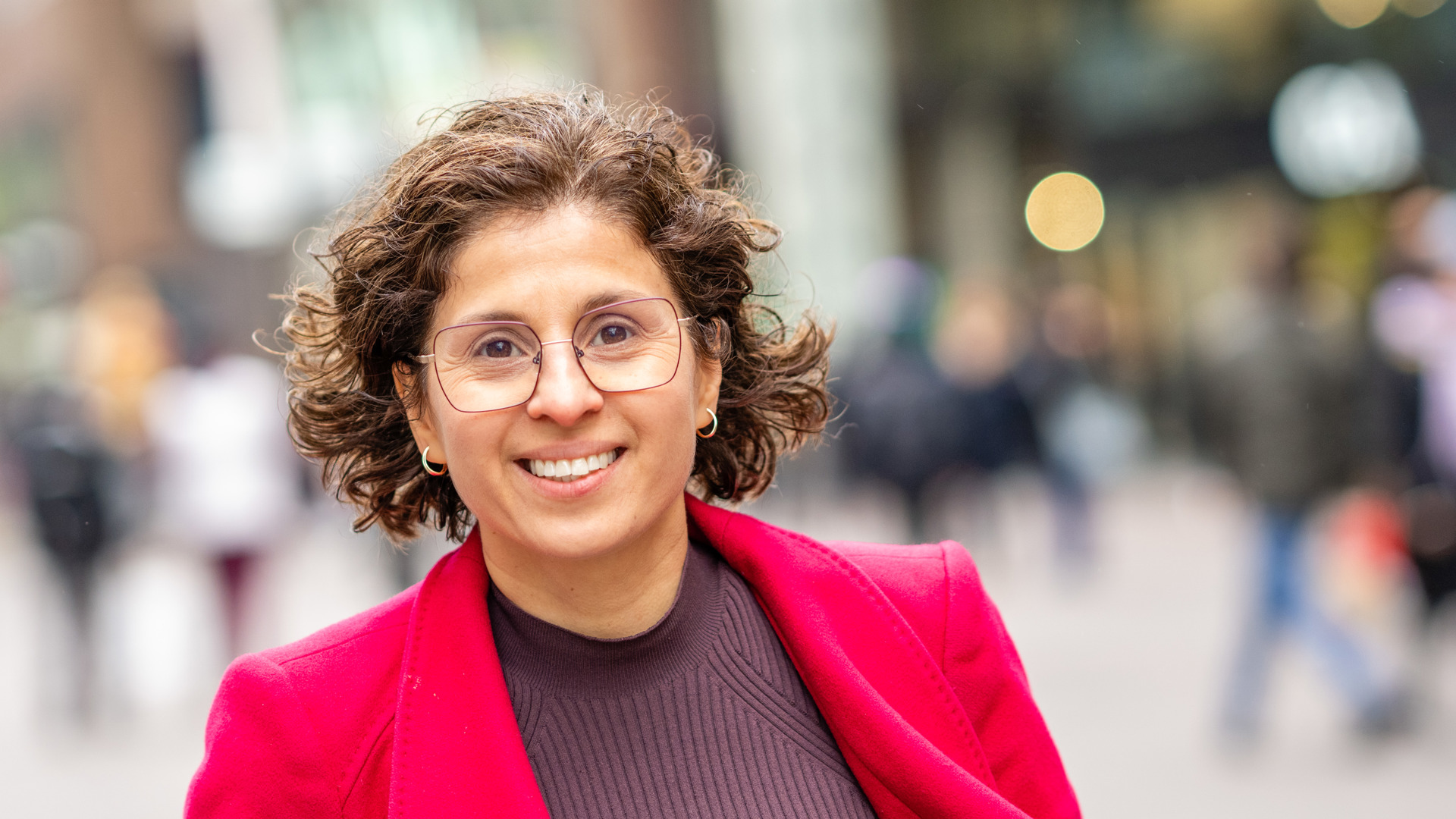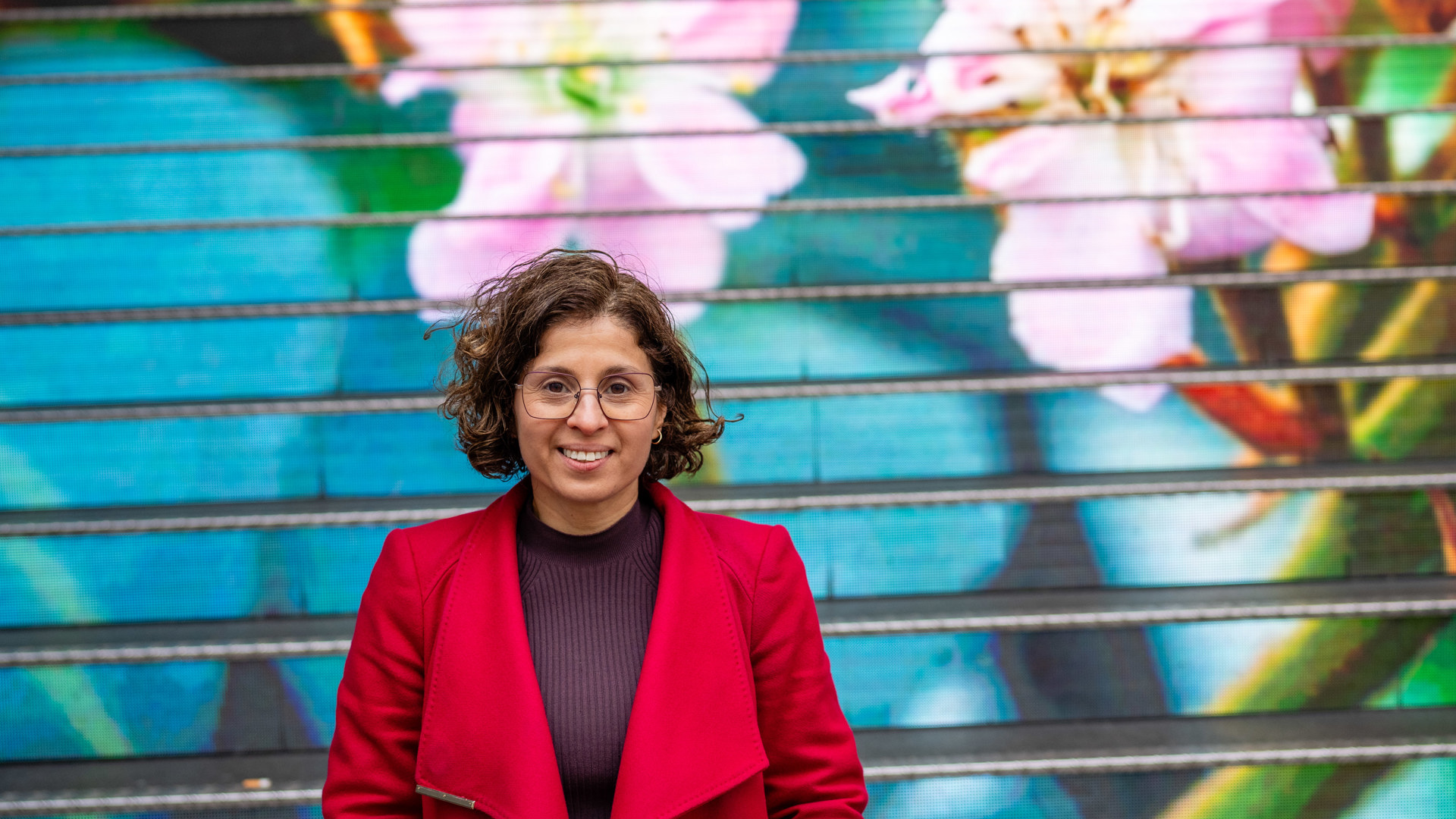
This is the view of Saniye Çelik, Professor of Diversity & Inclusion at Leiden University. According to her, it all starts with the leaders and managers who say: we think this is important and we are going to do something with it. "Inclusion is reflected in all mutual communication. It's about how you interact with people and how you treat each other. Each individual in a team plays a role in this. Central issues are: how do you treat each other, how do you give each other space and how do you give each other the feeling of being heard. This is easier said than done."
Reflection on the state of inclusion is the magic word here, according to Çelik. "Take your time for this too. It should also be normal for this to become a regular part of, for example, an MT meeting and it should also be regularly on the agenda at other meetings. This automatically gets it into the work flow and you no longer have to think about it separately."

"An inclusive policy produces immediate results; fewer sick reports, more well-being and more happiness at work"
Many know that it is the tone that makes the music. This is often more difficult in discussions, which is why, according to the professor, it is good to train word choices. "For example, I avoid saying: 'I don't agree with that'. This quickly comes across as something disapproving or attacking. For example, you can say: 'I see it this way'. So think about how you have a good conversation with each other. If you reflect for seven minutes a day, that's a good training that makes you better and better at having constructive conversations." In addition, daring is important. "You have to be willing to give up something, because if you want inclusion for the other, you often have to give up something yourself."
Where does it regularly go wrong? Doing inclusion instead of making it part of your business. "Managers often see inclusion as something social rather than part of the business. This is not true; The well-being of employees leads to fewer sick calls and fewer people leaving your company. It's simply about the well-being of your people and your care for your internal organisation. Make sure you have a vision on this. What do you want to work on internally and externally as an insurer? For your people and for your customer groups. This is essential to make progress."

"If you want inclusion for the other, you often have to give up something yourself"
Many insurers talk a lot about customer loyalty, but how can you best organise this? "What you see is that many organisations say that they want to be a reflection of their customers, so that customers feel connected to your organisation or service. If people recognise themselves in someone else, they also have more trust in that person and therefore in your company. This happens, for example, in healthcare. This recognition is reflected in visible characteristics (such as skin colour or other external characteristics), but also in invisible characteristics such as a certain perspective. The most important thing is that you have people in-house who can connect with your customer group, who have skills to reach specific groups. This is not so much about whether your name is Hans or Hassan, but above all: intercultural sensitivity. Can you connect with people from different cultures? So as a manager, pay close attention to who you put in which position and which skills are best used in which place."
When developing new products and services, it is important to include people in the process who bring a different perspective. So make sure that you look at a new product to be introduced with different 'glasses'. In municipalities, for example, there are co-creation sessions where people from other backgrounds and ages watch."
Çelik is not in favour of quotas, but is convinced that it does help to bring about a change: "It is important to have a good reflection of the inner world to the outside world. If 70 percent of the employees are women, this should also be reflected in the board of directors. Recognition is important. Quotas are a tool to accelerate organisational change. Otherwise, excuses are sought; 'We can't find anyone'. In a way, it's a shame that it has to be done through a quota, but it does help."

Inclusion is a large and complex subject and is therefore often tackled far too grandly, according to the professor. "Many organisations want to work on everything and then end up doing nothing. I see organisations that proudly tell what they do, but in reality they can no longer see the wood for the trees. In short: focus is essential. I regularly see companies doing all kinds of activities and fun sessions. This is important for awareness, but the goal is often forgotten. Create a multi-year plan and work step by step to achieve an inclusive organisational culture. Sometimes the focus is on the composition of staff, sometimes the communication is important to boost inclusiveness in approach and services. Also important: make it a theme for everyone, not just employees who are different from most of their colleagues. Realize that it will never be a topic for everyone, but include everyone in the organisational development as much as possible. If people believe in it themselves, they will also propagate it. If you say as a manager, 'I don't like this', then you're not in the right place."
Furthermore, Çelik reports that attention to people in times of artificial intelligence (AI) is becoming more important than ever. "AI, artificial intelligence, has many advantages, but it does require agility from organisations and people. This requires a new competence among employees, namely the flexibility to move with them. We are also becoming (even) more dependent on systems and working methods, which in turn brings a new work dynamic."
Finally, she states that insurers should absolutely (further) work on inclusion, but that they do not need to know everything. "Make sure you bring in or involve experts. Who can help you further or spar with you. You don't have to do it alone, and accept that you don't know certain things (yet) enough. Searching is part of learning, so keep doing that."
 Since 2023, Saniye Çelik has held the endowed chair on diversity and inclusion in the police at Leiden University, which was established and is funded by the National Police. She is also a lecturer in diversity and inclusion at Leiden University of Applied Sciences. She conducts research on diversity and inclusion issues, social safety, (institutional) discrimination, racism and undesirable behaviour. Saniye Çelik worked for the government for more than thirty years, of which seventeen years with the police and fourteen years with the Ministry of the Interior and Kingdom Relations. There she coordinated the diversity policy of various cabinets for the public sector. She has developed the Inclusion Scan for individuals, teams and organisations, she provides training and development programmes and guides boards and management of organisations in diversity, leadership and inclusive culture.
Since 2023, Saniye Çelik has held the endowed chair on diversity and inclusion in the police at Leiden University, which was established and is funded by the National Police. She is also a lecturer in diversity and inclusion at Leiden University of Applied Sciences. She conducts research on diversity and inclusion issues, social safety, (institutional) discrimination, racism and undesirable behaviour. Saniye Çelik worked for the government for more than thirty years, of which seventeen years with the police and fourteen years with the Ministry of the Interior and Kingdom Relations. There she coordinated the diversity policy of various cabinets for the public sector. She has developed the Inclusion Scan for individuals, teams and organisations, she provides training and development programmes and guides boards and management of organisations in diversity, leadership and inclusive culture.
Text: Christel Dieleman, photos: Ivar Pel